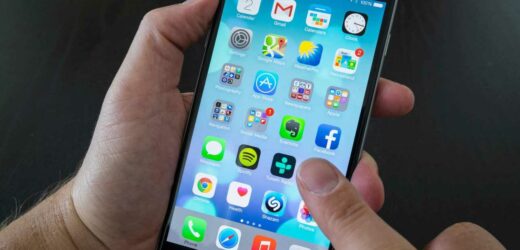SPENDING too long on your smartphone may not be so smart for your health.
Taking calls for as little as 30 minutes a week can raise your chances of developing high blood pressure by 12 per cent, a study at China’s Southern Medical University found.
Four hours a week may increase that danger by 16 per cent, and six hours by 25 per cent.
Here, we reveal other ways your handset can affect body and mind — and how to stay well.
NOMO NOT FOMO: If you cannot bear being parted from your handset, this may be “no mobile phone phobia” — dubbed nomophobia.
A YouGov study found 53 per cent of smartphone users feel anxious when they misplace their phone, the battery dies or they have no signal.
Face the fear. Start by leaving the phone behind, or well away from you, and gradually increase your time apart from it.
TINDER FINGER: If you are a non-stop swiper or cannot refrain from texting and have pain in your fingers, this may be a condition known as Tinder Finger, or Texting Thumb.
A 2019 study in the Journal of Public Health found that while discomfort may be short-term, it can lead to tendonitis if left untreated, and even long-term disability.
So curb the habit — take breaks from heavy texting or typing every 20 minutes.
Most read in Health
Lifesaving adrenaline allergy pens recalled over fears they don’t work
The 7 illnesses pharmacists can now treat WITHOUT you having to see your GP
My boss fired me after I got breast cancer – now I've won £32k
Our 3 teen daughters killed themselves within months in NHS hospital
PHANTOM PHONE POCKET SYN-DROME: This is when you reckon you had an alert but there are no new messages.
Research in the US, at the Georgia Institute of Technology, found 90 per cent of people suffer from this, when the phone becomes an extension of “you”.
Keeping it on your desk or a nearby table can ease symptoms. If not, cognitive behavioural therapy may help.
NIGHT SCROLLING DAMAGES EYES: We check our phone on average 150 times a day, and a study in Texas found using it late at night raises the risk of long-term eye issues such as macular degeneration — when the centre of the retina, the macula, deteriorates and vision is distorted or lost.
For every 20 minutes on the phone, look away for 20 seconds.
Scrolling before bed also affects sleep hormone melatonin, making it hard to nod off — so best not do it.
PILING ON THE POUNDS: Being glued to your phone increases the risk of obesity by 43 per cent, cardio-vascular trouble and even death, say researchers in Colombia from the Simon Bolivar University.
Another study, in 2018 in the journal Physiology and Behaviour, found using a phone while eating increases calorie intake by 15 per cent. All the more reason for no handsets at dinner.
TECH NECK: Smartphones are a pain in the neck — because of the strain caused to this part of the body by constantly eyeing your screen.
Specialist clinic New York Spine Surgery & Rehabilitation Medicine found that at a 15-degree angle, the head weighs 27lb — and at 60 degrees, more than twice that.
Tilting your head from side to side, or up and down, can help.
SCREEN TIME CAN GIVE YOU SPOTS: While more research is needed into the link between phone radiation and skin, a University of Arizona study found handsets are ten times dirtier than a toilet seat.
Using headsets or simply putting your phone on loudspeaker will limit phone-face contact, and cleaning the screen regularly should ward off pimple-inducing bacteria.
Read More on The Sun
Major change to prescription rules revealed – will you be affected?
Warning for shoppers over huge changes to Tesco Clubcard coming within weeks
SCROLL LESS TO STAY SHARP: If you often look to your phone for answers to questions you already know, it could make you mentally lazy.
A study in the Journal of the Association for Consumer Research found awareness and understanding are reduced if a smartphone is within reach — even if turned off
Source: Read Full Article















